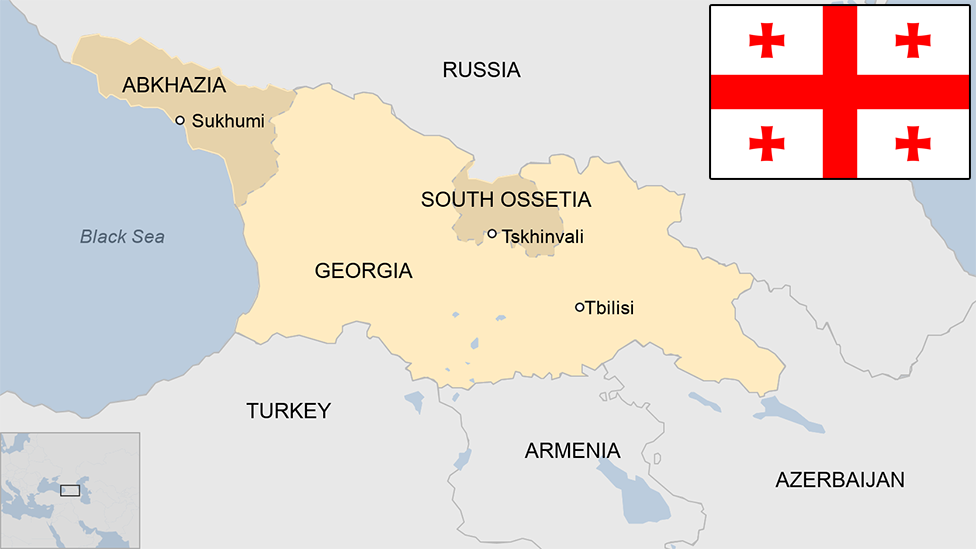Abkhazia profile
- Published
This page is no longer being updated. It was last updated on 19 November 2024
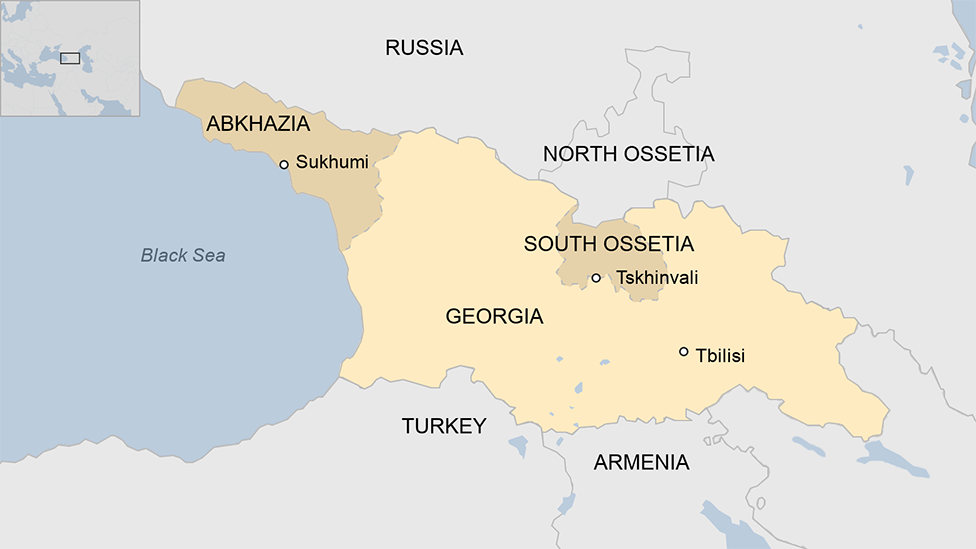
Situated in the north-western corner of Georgia with the Black Sea to the south-west and the Caucasus mountains and Russia to the north-east, Abkhazia was once known as a prime holiday destination for the Soviet elite.
The region fought a war of secession with Georgia in 1992-93, and unilaterally declared its independence in 1999. Its independence has gained little international recognition, most countries regard it as a part of Georgia.
After the Georgian-Russian war in 2008, Moscow recognized the region as an independent state. Georgia responded by declaring Abkhazia "occupied" by Russia.
Abkhazia's economy depends overwhelmingly on tourism from Russia and in recent years it has drifted closer to Russia. In 2009 Moscow signed a five-year agreement with Abkhazia to take formal control of its frontiers with Georgia proper, while in 2014 Russia and the region signed a "strategic partnership" agreement.
Discussions on security and stability in the South Caucasus have been held in Geneva since 2008 between Georgia, Russia, and the US with the mediation of the UN, EU and OSCE. Delegations from Georgia's breakaway regions of Abkhazia and South Ossetia participate as part of the Russian delegation.
Read more country profiles, external - Profiles by BBC Monitoring, external
ABKHAZIA: FACTS
Capital: Sukhumi
Area: 8,665 sq km
Population: 244,000
Languages: Abkhaz, Russian, plus Georgian, Mingrelian, Svan, Armenian, Ossetian
Life expectancy: data unavailable
LEADER
President: Aslan Bzhania (resigned)
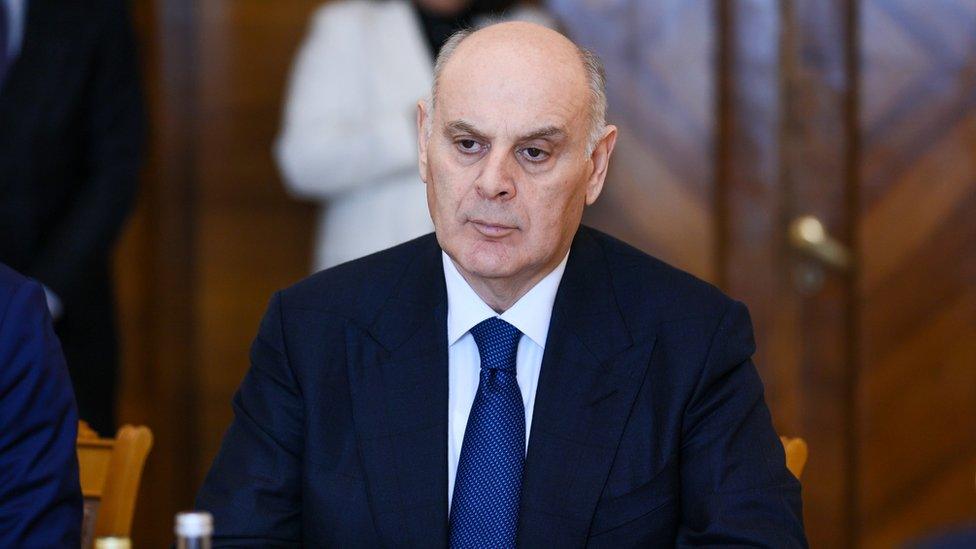
Aslan Bzhania resigned as president in November 2024 after days of mass protests over a controversial pro-Russia bill.
Aslan Bzhania's press office said he was quitting "to maintain stability and constitutional order" and that the two sides had agreed protesters who had stormed the parliament in Sukhumi would disperse.
The bill, which would have legalised Russian investment and land ownership, was withdrawn.
Bzhania's deputy is set to become Abkhazia's acting leader ahead of new presidential elections, in which Bzhania has indicated he will stand as a candidate.
Locals feared that the proposed bill would trigger an influx of Russian investment, pricing them out of the property market and further strengthening Moscow's grip on the region.
Bzhania had been elected with 59% of the vote in Abkhazia's March 2020 presidential elections.
MEDIA
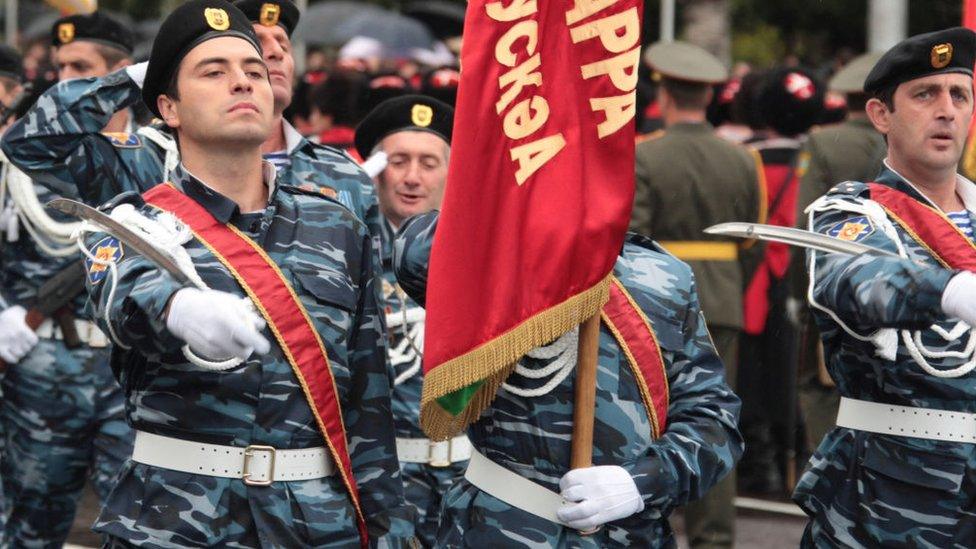
A military parade marking the 20th anniversary of Abkhazia's de facto independence
The breakaway region of Abkhazia is fully outside Georgia's media environment.
The pro-Kremlin press is popular, Georgian-language press is not available and Georgian TV stations can be watched only via satellite.
Newspapers are available in the Abkhaz and Russian languages but most of the time they are devoid of criticism. Locals have access to Abkhaz, Russian and Turkish language radio stations.
TIMELINE
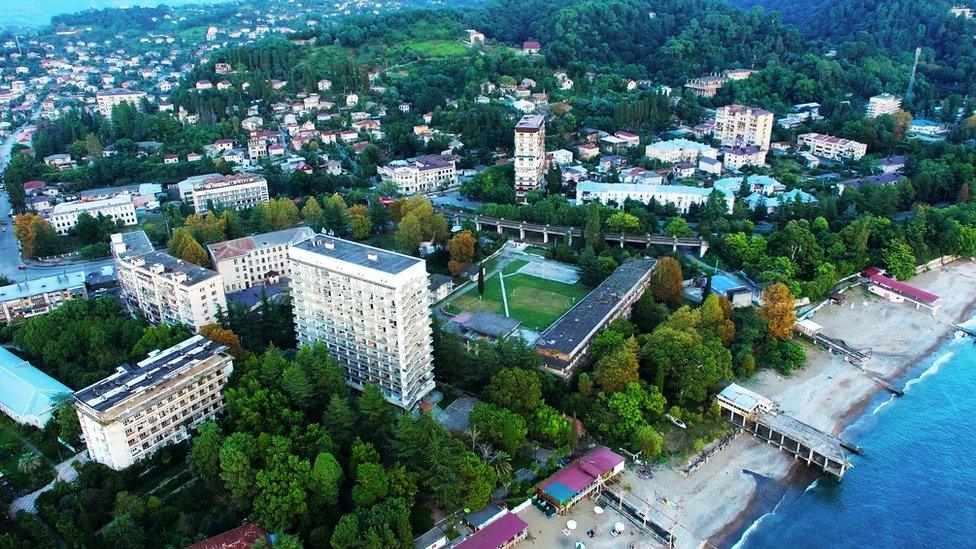
Sukhumi was originally founded by Greek settlers in the 6th Century BC
Some key dates in Abkhazia's history:
756 - Independent kingdom formed.
985 - Becomes part of Georgia, later regaining independence.
1578 - Comes under Turkish rule.
1810 - Russia declares Abkhazia a protectorate.
1864 - Russia annexes Abkhazia.
1918 - Independent Georgian state - including Abkhazia - declared in wake of Russian Revolution.
1921 - Red Army invades, Georgia absorbed into emerging Soviet Union. Abkhazia becomes a separate soviet republic, with the ambiguous status of a treaty republic associated with the Georgian soviet republic.
1931 - Soviet authorities incorporate Abkhazia into Georgia.
1991 - Georgia declares independence.
1992-93 - Georgia-Abkhazia War: Georgia sends troops to Abkhazia to halt moves for secession. Fierce fighting ends with Georgian forces being expelled from Abkhazia. Up to 30,000 people are killed. Before the war Georgians make up nearly half of Abkhazia's population, but up to 250,000 Georgians and others are expelled, virtually halving Abkhazia's population.
1994 - Ceasefire agreed, peacekeepers arrive, nearly all Russian.
1999 - Abkhazia declares independence. Few countries recognise this.
2008 - As war between Russian and Georgian forces breaks out in South Ossetia, Abkhaz forces clash with Georgian troops in the Kodori Gorge in Abkhazia. Russia sends in troops to support the Abkhazians. Georgian forces and civilians evacuate the last part of Abkhazia under Tbilisi's control.
Russia formally recognises Abkhazia's independence, following the Russian-Georgian war over South Ossetia.
2014 - Abkhazian Revolution: President Aleksandr Ankvab resigns after mass protests in Sukhumi and demonstrators storm his office. Russia and Abkhazia subsequently sign a "strategic partnership" agreement. Georgia accuses Moscow of seeking to annex Abkhazia.
2020 - Raul Khadzhimba becomes second president in six years to be forced from office by public protests.
2023 - Abkhazia signs agreement for Russia to build a permanent naval base in the Black Sea port of Ochamchire.
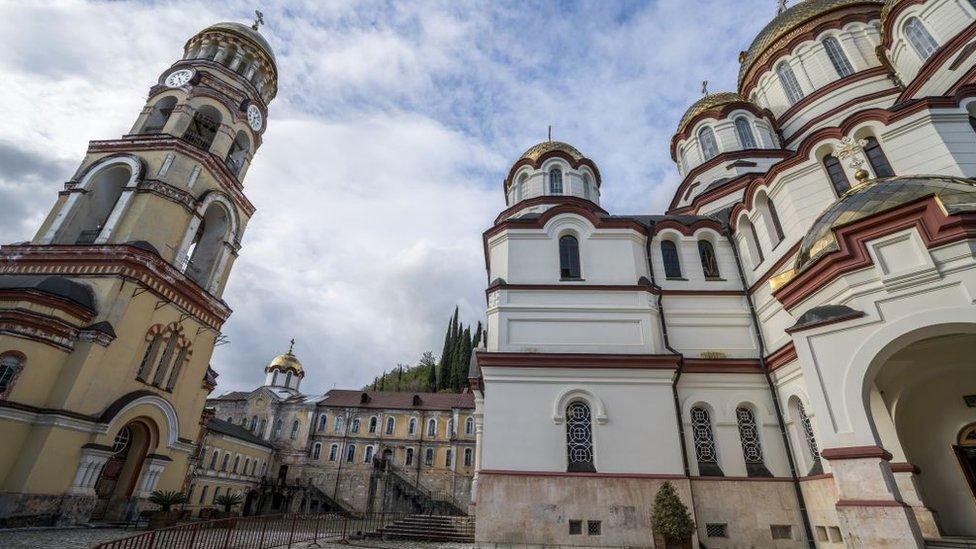
St Panteleimon cathedral in Sukhumi: Abkhazia converted to Christianity during the 4th Century
- Published25 March 2024

- Published28 August 2023

- Published28 August 2023
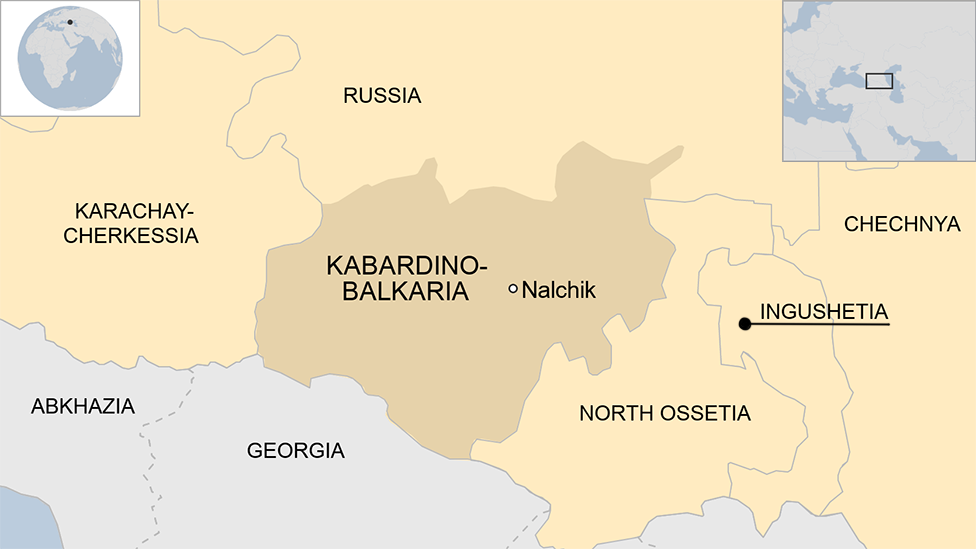
- Published17 October 2024
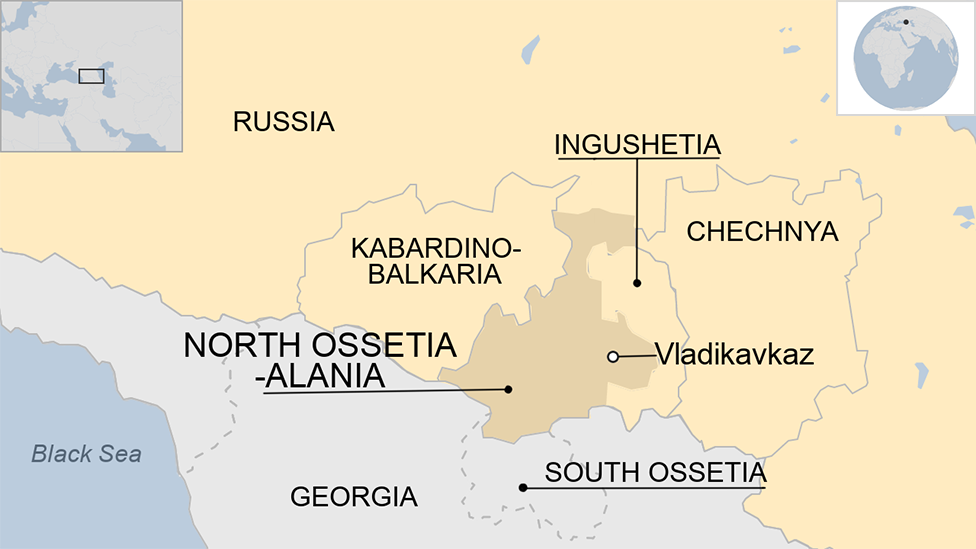
- Published28 August 2023
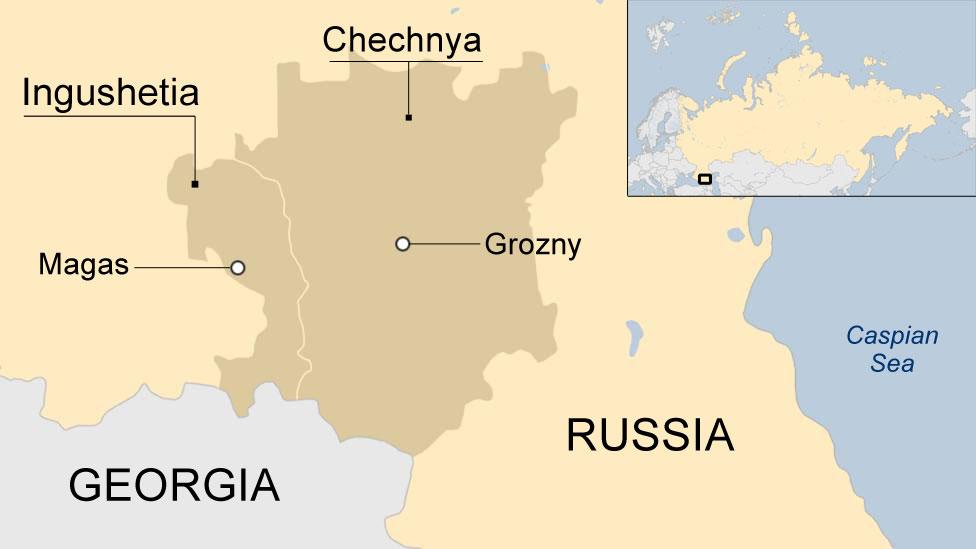
- Published28 August 2023
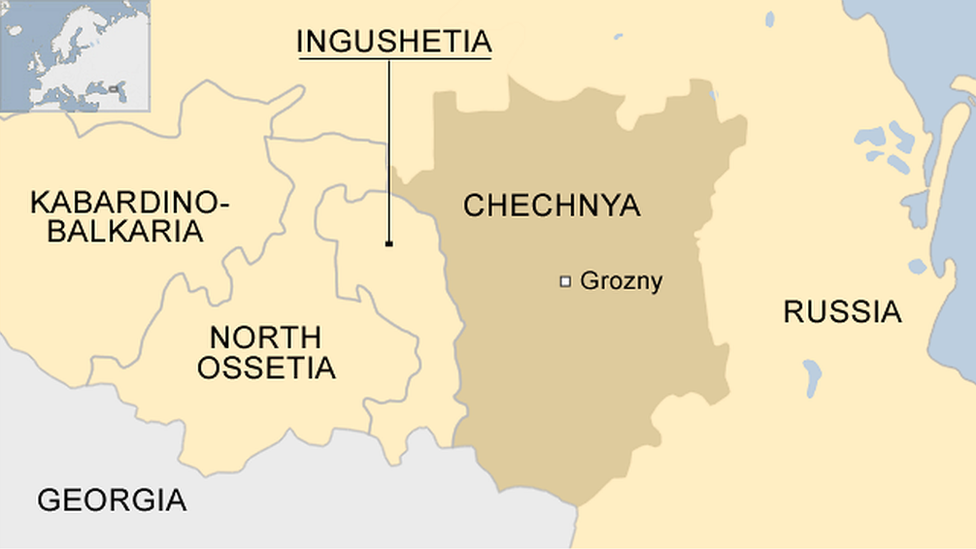
- Published30 October 2023
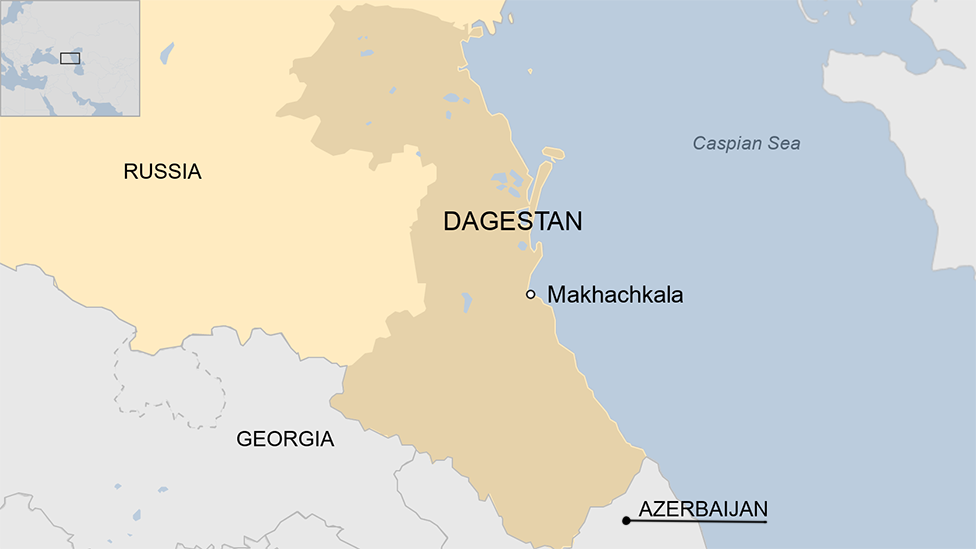
- Published25 October 2024

- Published31 December 2024
